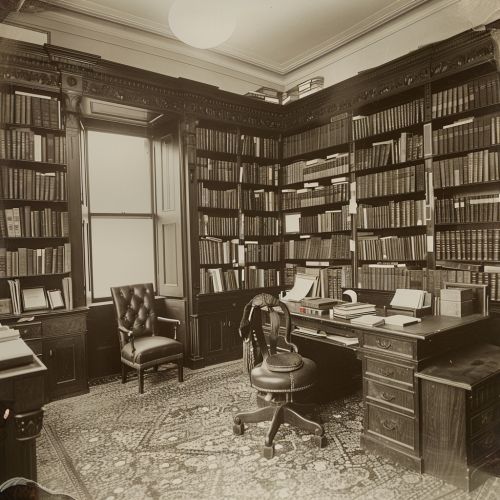Jean-Martin Charcot
Early Life and Education
Jean-Martin Charcot was born on November 29, 1825, in Paris, France. He was the son of a carriage builder and had a modest upbringing. Despite his humble beginnings, Charcot had a strong desire for knowledge and was an avid reader from a young age. This passion for learning led him to pursue a career in medicine, a field that was rapidly evolving during his lifetime.
Charcot began his medical studies at the University of Paris, where he was influenced by the teachings of Guillaume Duchenne de Boulogne, a pioneer in neurology. Charcot's interest in the nervous system was sparked by Duchenne's work, and he decided to specialize in neurology, a decision that would shape the course of his career.


Career and Contributions to Neurology
After completing his medical studies, Charcot began working at the Salpêtrière Hospital in Paris, one of the largest hospitals in Europe at the time. Here, he had access to a large number of patients, which allowed him to conduct extensive research and make significant contributions to the field of neurology.
Charcot is perhaps best known for his work on hysteria and hypnosis. He was one of the first to suggest that hysteria, a condition that was commonly associated with women and was thought to be linked to the uterus, was in fact a neurological disorder that could affect both men and women. He used hypnosis as a tool to study hysteria, demonstrating that symptoms could be induced or removed under hypnosis. This work laid the foundation for the later development of psychoanalysis.
In addition to his work on hysteria, Charcot also made significant contributions to the understanding of other neurological disorders. He was the first to describe and name multiple sclerosis, and his studies on the disease are still considered foundational. He also conducted important research on Parkinson's disease, amyotrophic lateral sclerosis (which is also known as Charcot's disease), and aphasia.
Charcot was not only a skilled researcher but also an excellent teacher. He was known for his detailed and vivid descriptions of neurological disorders, which helped to educate a generation of neurologists. Among his students were Sigmund Freud, the founder of psychoanalysis, and Alfred Binet, the inventor of the first practical IQ test.
Later Life and Legacy
Charcot continued to work and teach at the Salpêtrière Hospital until his death on August 16, 1893. His contributions to neurology have had a lasting impact on the field. His work on hysteria and hypnosis paved the way for the development of psychoanalysis, and his research on neurological disorders has helped to improve our understanding and treatment of these conditions.
Charcot's legacy is not without controversy, however. Some have criticized his use of hypnosis, arguing that it was manipulative and unethical. Despite these criticisms, there is no denying the significance of his contributions to neurology and psychology.
